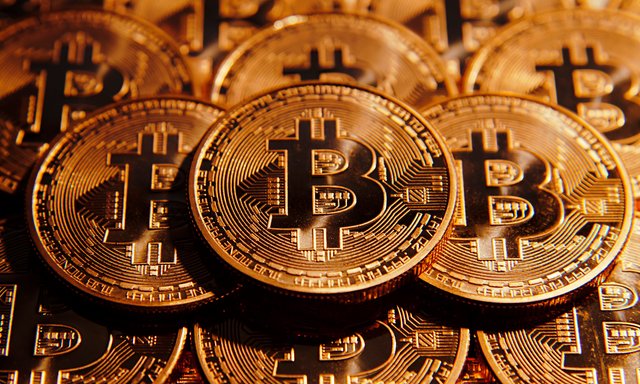A complete swing and a miss- WSJ article today called "Should Nations Issue Bitcoin?"
This is the full article from WSJ which im sure many of you will find amusing. They still seem not to get it.
When it comes to bitcoin and digital currencies, central banks might be considering the adage: “If you can’t beat ’em, join ’em.”
In a research paper published Monday, economists at the Bank of England advocated that central banks issue their own kind of digital currency. Using the U.S. as a case study, they argued it could give a permanent boost to the economy of around 3%, as well as provide policy makers with more effective tools to tame financial booms and busts.
BOE economists John Barrdear and Michael Kumhof write that “reductions in real interest rates, distortionary taxes and monetary transaction costs” would boost the economy.
Much like physical cash, digital currencies such as bitcoin allow direct payment from one person to another, but they also have all the advantages of bank transfers, because large payments can be made instantaneously around the globe.
But the main appeal of bitcoin isn’t that it is electronic. In fact, most money already is: Only about 5% of money in the economy is physical cash; the rest is bank deposits.
Rather, a digital currency offers a decentralized way to make payments without needing commercial banks to stand in the middle and record the transaction. Payments are vali-
3% If central banks issue digital currency, the economy could rise this much, a study says
BITCOIN
dated by other users in a global network of computers and then updated in a shared record known as the blockchain.
Central banks across the developed world, including the Bank of England and the Bank of Canada, are studying the potential of this technology now.
Were central banks to issue digital cash and make it available to the general public, money would exist electronically outside bank accounts in digital wallets, much as physical bank notes do. This means households and businesses would be able to bypass banks altogether when making payments to one another.
This could trigger a radical reshaping of the financial system.
“Making central-bank money widely available could have an impact on deposits held at commercial banks and a knock-on effect on the banking system,” the BOE said in a research paper last year, because the new digital money would be seen as a cheaper and safer alternative.
“I don’t see how banks could compete,” said Peter Stella, former central-banking head of the International Monetary Fund and director of Stellar Consulting LLC.
Many economists would cheer at the prospect of all the money in the economy being issued by the central bank, instead of existing as current accounts or deposits, which are the liabilities of private banks. One of the authors of the BOE digital-currency paper, Mr. Kumhof, in 2012 co-wrote research for the IMF making the case for “full-reserve banking.” He argued it could boost the U.S. economy by about 10%.
Key figures in American economics, such as Irving Fisher and Milton Friedman, also have advocated full-reserve banking. Under such a system, banks are forced to back every single deposit they issue to their customers with money at the central bank, essentially turning the central bank into the sole creator of money.
This isn’t how the monetary system works at the moment. As long as deposits at private banks can act as money, banks have the power to create an infinite amount of money out of thin air. When they grant a loan, banks just use their computers to increase the customer’s account balance.
It is only when one bank needs to make payments to another that it requires actual central-bank-issued cash, called reserves. Banks always can get more reserves at the central bank, for a price.
While this price—the interest rate—can influence how much money private banks create, many economists have long argued this control is too weak, giving birth to financial bubbles.
A central-bank-issued bitcoin would be a means for policy makers to completely control the amount of money in the economy.
For many economists, however, the focus on the quantity of money and who creates it is a mistake. They argue it is the amount of credit and how it is used that matters, which means overly optimistic expectations about the future still would bring about a financial bubble.
“It’s the private sector which decides whether actually to accept those terms and conditions and ask the banks to give them the loan,” said Charles Goodhart, a professor at the London School of Economics and former Bank of England rate-setter.
Source "Wallstreet Journal"

"We have elected to put our money and faith in a mathematical framework that is free of politics and human error." - Tyler Winklevoss
Good to know ●‿●
LOLOLOLOLOLOLOL Too funny :D
Keep it Clean!